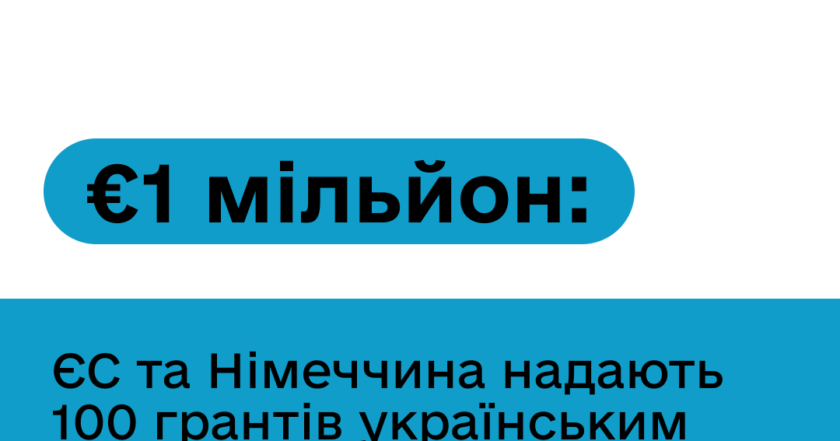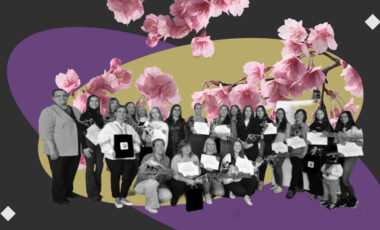EU and Germany start new grant program to support Ukrainian businesses

The Ukrainian non-profit think tank EasyBusiness announces the start of a grant competition for Ukrainian firms within the EU4Business program.
Financed by the European Union and the German government, 100 Ukrainian micro, small, and medium-sized enterprises (SMEs) with export capacity and innovation potential will each receive €10,000 for recovery, development, and resilience, Rubryka reports.
What's the problem?
Russia's war against Ukraine has elevated the collaboration between businesses and communities to a new level. On one hand, businesses began seeing communities as partners capable of addressing complex social challenges. On the other hand, communities are more focused on aiding local companies.
"For Ukraine's economy during times of war, it's crucial to support SMEs so that they can at least withstand and learn to survive, gradually recover, and develop," said Chloé Allio, Head of the Economic Cooperation, Energy, Infrastructure, and Environment department at the European Union Delegation to Ukraine. "Every entrepreneur is important. Through its activities, each enterprise helps the country function: it provides jobs, pays taxes, and contributes to value-added chains."
Local businesses support the community's economy, create jobs, and contribute to reconstruction. However, during the war, they also require special support.
"Supporting and stimulating the development of Ukrainian small and medium-sized businesses is extremely important now when our country is at war. The working businesses sustain the economy and allow us to meet defense needs financed through their paid taxes," said Nadia Byhun, Deputy Minister of Economic Development of Ukraine.
What's the solution?
EasyBusiness announces a grant competition within the EU4Business program for 100 Ukrainian SMEs with export capacity and innovative potential.
"EasyBusiness continues to work toward the development of Ukrainian businesses. Micro, small, and medium-sized businesses (MSMEs) are one of the key driving forces for Ukraine's economic recovery," said Dmytro Livch, Executive Director of EasyBusiness. "Thanks to €1 million, 100 entrepreneurs will be able to scale their export opportunities and work on entering other markets. We are grateful to the European Union and the German government for supporting Ukraine through the EU4Business program. We look forward to applications from businesses."
How does it work?
Grant applications can be submitted from January 16 to February 11, 2024, using this link. Businesses in the following sectors are invited to participate in the competition:
- Processing (machine building, furniture, food, light industry, etc.)
- Creative industries
- Logistics and transport
- Other sectors not mentioned above with export potential or innovation potential (e.g., educational and medical services)
The planned wave of grants will contribute to achieving the goals of the government initiative #YeRobota under the auspices of the Ministry of Economic Development of Ukraine.
"We are grateful to our partners for grant support programs for entrepreneurs, especially those working in the processing industry, producing high-value-added products, and increasing Ukraine's export potential," said Byhun.
Since 2022, the EU and Germany have implemented five competitive waves, providing over 1,100 grants worth more than €5.5 million to Ukrainian micro, small, and medium-sized enterprises.
The program aims to support Ukraine's economic stability, recovery, and growth, create better conditions for developing Ukrainian businesses, and support innovation and exports.
The strategic executor of the program is the German federal company Deutsche Gesellschaft für Internationale Zusammenarbeit (GIZ) GmbH. The NGO EasyBusiness undertakes the practical implementation of the program with informational support from the Center for Economic Recovery (CER).
In related news, the survey in December 2023 showed that the main concern for Ukrainian businesses was danger. Still, entrepreneurs continued to adapt to working conditions during the war.
The UN Global Compact also launched the SEED 3.0 project, providing educational and grant assistance to small and micro-businesses in the agricultural sector and related industries.

























































